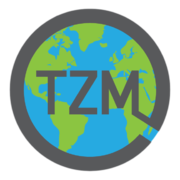The Zeitgeist Movement
 | |
| Abbreviation | TZM |
|---|---|
| Formation | 2008 |
| Type | Advocacy group |
Region served | International |
Key people | Peter Joseph |
| Website | www |
The Zeitgeist Movement' (TZM) is a 501(c)(3) non-profit organization incorporated in the state of California.[1] It is also a grassroots social movement organized by regional chapters.[2][3] It was founded by filmmaker Peter Joseph in 2008.[4] According to its mission statement it is “a sustainability advocacy organization, which conducts community based activism and awareness actions through a network of global/regional chapters, project teams, annual events, media and charity work.”[5] It advocates a transformation of society, specifically its economic system, promoting a post-scarcity type economic approach often termed a “resource-based economy”.[6]
History
The Zeitgeist Movement was originally created in 2008 in partnership with an organization called The Venus Project that was founded by engineer and futurist Jacque Fresco.[4] Fresco is said to have coined the term “resource-based economy”.[5] In 2011, the two groups separated over disagreements in goals and objectives.[7] While started as an all volunteer, informal group, without any legal status, in 2016 the movement formed its 501(c)(3) nonprofit under the same name, allowing for tax-exempt status and tax-deductible donation support. The name “zeitgeist”, meaning the “spirit of the age” was taken from founder Peter Joseph’s Zeitgeist Film Series, which was an inspiration for the organization.[5]
Structure
The movement’s main administration consists of a board of directors based in the United States, while also maintaining a volunteer international chapter structure with groups in numerous countries.[2][8] As predominantly an educational movement, it conducts annual events, produces video and literary media, and works through teams to conduct research and development projects.[8]
Criticism
An article in the Journal of Contemporary Religion describes the movement as an example of a "conspirituality," a synthesis of New Age spirituality and conspiracy theory.[9]
Michelle Goldberg of Tablet Magazine called the movement "the world's first Internet-based apocalyptic cult, with members who parrot the party line with cheerful, rote fidelity." In her opinion, the movement is "devoted to a kind of sci-fi planetary communism", and the 2007 documentary that "sparked" the movement was "steeped in far-right, isolationist, and covertly anti-Semitic conspiracy theories."[10]
Alan Feuer of The New York Times said the movement was like "a utopian presentation of a money-free and computer-driven vision of the future, a wholesale reimagination of civilization, as if Karl Marx and Carl Sagan had hired John Lennon from his “Imagine” days to do no less than redesign the underlying structures of planetary life."[11]
In Socialist Unity magazine and also Tablet Magazine the film’s relationship to anti-Semitic texts is claimed and it is claimed that those theories are made to look left-wing or liberal. A relationship between the film and a book called The Protocols of the Elders of Zion, along with the films use of other anti-Semitic tropes is claimed.[12][13]
See also
References
- ^ "THE ZEITGEIST MOVEMENT (Incorporation details)", businessfilings.sos.ca.gov,.
- ^ a b Shane Cohn, "The Zeitgeist Movement spreads to Ventura County", vcreporter.com December 5, 2011,.
- ^ "The Zeitgeist Movement Chapters Portal", tzmchapters.net.
- ^ a b Travis Donovan, "The Zeitgeist Movement: Envisioning A Sustainable Future", huffingtonpost.com May 25, 2011,.
- ^ a b c "The Zeitgeist Movement: practical advices to build a better future", heralddeparis.com March 19, 2009.
- ^ "TEDxO'Porto - Peter Joseph - Arriving at a Resource-Based Economy", tedxtalks.ted.com.
- ^ "Zeitgeist: The Venus Project Break Up - Peter Joseph - London Real", youtube.com,.
- ^ a b TIFFY THOMPSON, "First Tool Libraries, now Timebanks: Toronto's Zeitgeist movement is expanding", yongestreetmedia.ca June 5, 2013.
- ^ Ward, Charlotte; Voas, David (2011). "The Emergence of Conspirituality". Journal of Contemporary Religion. 26 (1): 109. doi:10.1080/13537903.2011.539846. Retrieved June 16, 2012.
- ^ Goldberg, Michelle (February 2, 2011). "Brave New World". Tablet. Retrieved April 15, 2015.
- ^ Alan Feuer (March 17, 2009). "They've Seen the Future and Dislike the Present". The New York Times. Retrieved March 17, 2009.
- ^ http://socialistunity.com/zeitgeist-exposed Retrieved June-15-2016/
- ^ http://www.tabletmag.com/jewish-news-and-politics/57732/brave-new-world Retrieved June-15-2016
Cite error: A list-defined reference named "g16" is not used in the content (see the help page).
Cite error: A list-defined reference named "h6" is not used in the content (see the help page).
Cite error: A list-defined reference named "h11" is not used in the content (see the help page).
Cite error: A list-defined reference named "t9" is not used in the content (see the help page).
Cite error: A list-defined reference named "v2" is not used in the content (see the help page).
Cite error: A list-defined reference named "p17" is not used in the content (see the help page).
Cite error: A list-defined reference named "pia14" is not used in the content (see the help page).
Cite error: A list-defined reference named "m15" is not used in the content (see the help page).
Cite error: A list-defined reference named "n18" is not used in the content (see the help page).
